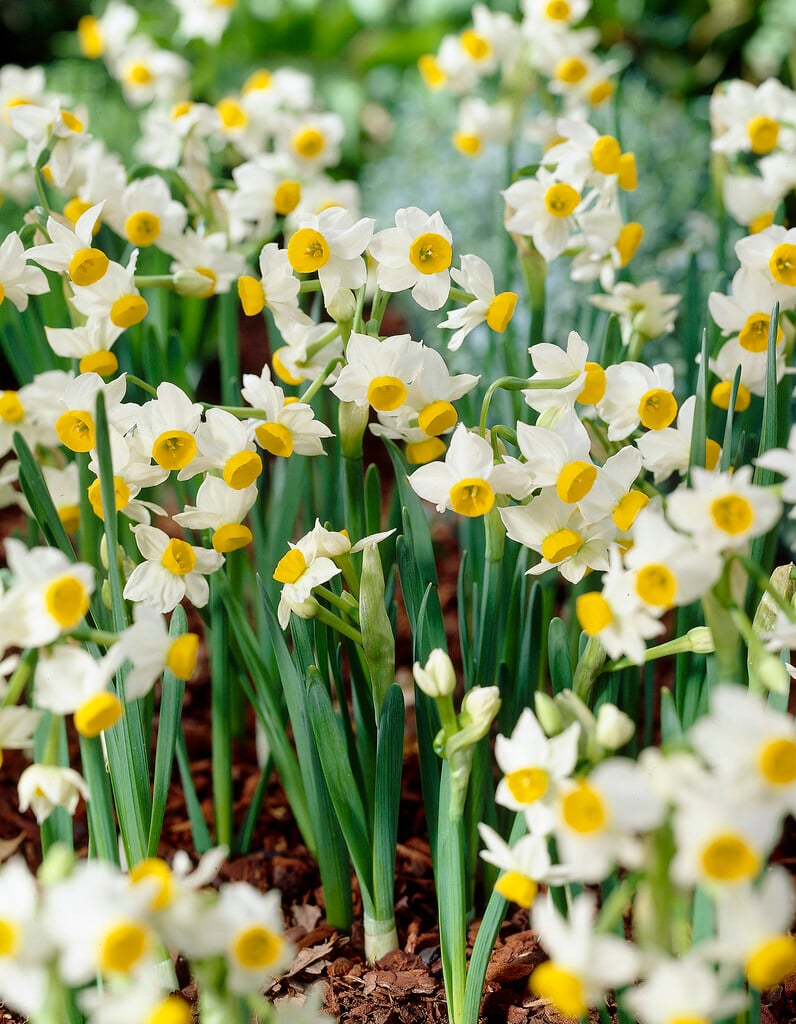Narcissus 'Canaliculatus' (8)
daffodil 'Canaliculatus'
A bulbous perennial up to 20cm tall, with up to seven flowers per stem. Flowers are 2.5cm wide, with white, slightly bent back perianth segments and a deep yellow bowl-shaped cup, with a smooth rim. Flowers are sweetly scented
Size
Ultimate height
Up to 10cmTime to ultimate height
1 yearUltimate spread
0–0.1 metreGrowing conditions
Moisture
Moist but well–drained, Well–drainedpH
Alkaline, NeutralColour & scent
| Stem | Flower | Foliage | Fruit | |
| Spring | White Yellow | |||
|---|---|---|---|---|
| Summer | ||||
| Autumn | ||||
| Winter |
Position
- Full sun
Aspect
South–facing
Exposure
Sheltered Hardiness
H4Botanical details
- Family
- Amaryllidaceae
- Native to GB / Ireland
- No
- Foliage
- Deciduous
- Habit
- Tufted
- Potentially harmful
- Harmful if eaten, skin irritant. Wear gloves and other protective equipment when handling. Pets (dogs, cats, tortoises): Harmful if eaten, skin irritant. For further information and contact numbers regarding pets, see the HTA guide to potentially harmful plants
- Genus
Narcissus are bulbous herbaceous perennials with linear leaves and leafless stems bearing flowers, which may be solitary or in umbels, with 6 spreading perianth segments and a cup or trumpet-shaped corona
- Name status
Accepted
- Horticultural Group
- Tazetta daffodils have relatively broad leaves, and stems bearing umbels of up to 20, usually fragrant flowers per stem, fewer in larger-flowered cultivars
How to grow
Cultivation
Plant bulb at one to two times its own depth. This cultivar needs a warm sunny spot in light soil to perform best.
Propagation
Propagate by removing offsets as the leaves fade in the summer; this variety is likely to increase rapidly at the expense of flowering
Suggested planting locations and garden types
- City and courtyard gardens
- Mediterranean climate plants
- Patio and container plants
- Garden edging
Pruning
Deadhead as flowers fade and allow the leaves to die down naturally
Pests
May be susceptible to slugs, narcissus bulb fly, narcissus eelworm, and bulb scale mite
Diseases
May be susceptible to narcissus basal rot, narcissus leaf scorch or daffodil viruses
Get involved
The RHS is the UK’s gardening charity, helping people and plants to grow - nurturing a healthier, happier world, one person and one plant at a time.
